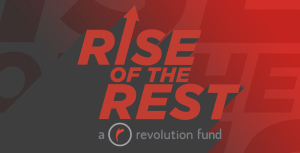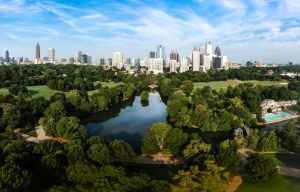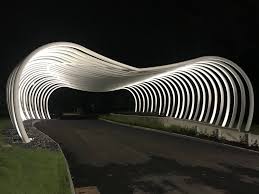 Throughout the Trump years, former AOL CEO Steve Case wandered the country, promoting the “Rise of the Rest.”
Throughout the Trump years, former AOL CEO Steve Case wandered the country, promoting the “Rise of the Rest.”
The idea was that you didn’t have to be in California to be in tech. You could do it from anywhere.
Not news to me. I’ve been covering the technology industry since 1982, from Atlanta. My wife has been working in it since 1983.
But for decades Techlandia represented just a few places. Like San Francisco, Seattle, Boston and Washington, D.C. Yet it exists everywhere. Always has.
The pandemic has altered the rules and thus accelerated the change. While the money for tech still comes from Silicon Valley and New York, workers and start-ups can be found everywhere.
 The real story of 2021 is how the Cloud Czars have gotten on board with decentralization. Apple is putting $1 billion into North Carolina’s Research Triangle Park, part of a $430 billion investment over the next five years. Microsoft has bought 90 acres on Atlanta’s West Side for office expansion.
The real story of 2021 is how the Cloud Czars have gotten on board with decentralization. Apple is putting $1 billion into North Carolina’s Research Triangle Park, part of a $430 billion investment over the next five years. Microsoft has bought 90 acres on Atlanta’s West Side for office expansion.
The importance of the Microsoft deal can’t be overestimated. Until recently, big Atlanta businesses were almost always found on the north side of town, either in Buckhead or literally outside the city, along the northern arc of I-285 from Dunwoody, through Sandy Springs to Marietta. Tech money has also gone out I-285 into Gwinnett County and up GA 400 as far as Alpharetta, which is 30 miles outside the city.
The city of Atlanta has remained the dumping ground for the region’s poor people. This is especially true on the west side, beyond Atlanta University, and south of I-20. While gentrification has flowed into the east side, where I live, commuters go north in the morning, and come south in the evening.
The Microsoft deal was made possible by the city’s creation of a new Westside Reservoir Park, alongside the existing Atlanta Beltline, which is a concrete trail laid over old railroad right of way. The Westside park is almost twice the size of Piedmont Park on the near northeast side. (My guess is it will eventually take the name of former Mayor Andrew Young, although more credit should go to Shirley Franklin, who bought the land.)
The park has become a development magnet. Combined with the growth of Georgia Tech to its east, that whole side of the city is being transformed, gentrified. City leaders are worried, and keep fighting for “workforce housing,” but the Microsoft announcement makes all this irreversible. Over the next few years Atlanta will become a majority upper-middle class city. It may also become a majority white city for the first time since the Civil Rights movement.

Demographic and economic change are what made Stacey Abrams possible. She saw it coming and is riding a wave. Tech businesses live with density. Wherever they go, they bring a more liberal, inclusive politics with them. That’s because human capital, trained and empowered minds, are what drives tech forward. Tech isn’t about controlling land, or scarce resources. It’s about getting more people to use tools and create innovation on top of them.
Georgia’s tipping point was reached ahead of other states because Stacey Abrams is a brilliant political organizer with a message that resonates. But it was going to happen anyway. It’s going to happen in North Carolina, too.
And it’s going to happen in Texas.
I, for one, welcome our new Cloud overlords.










